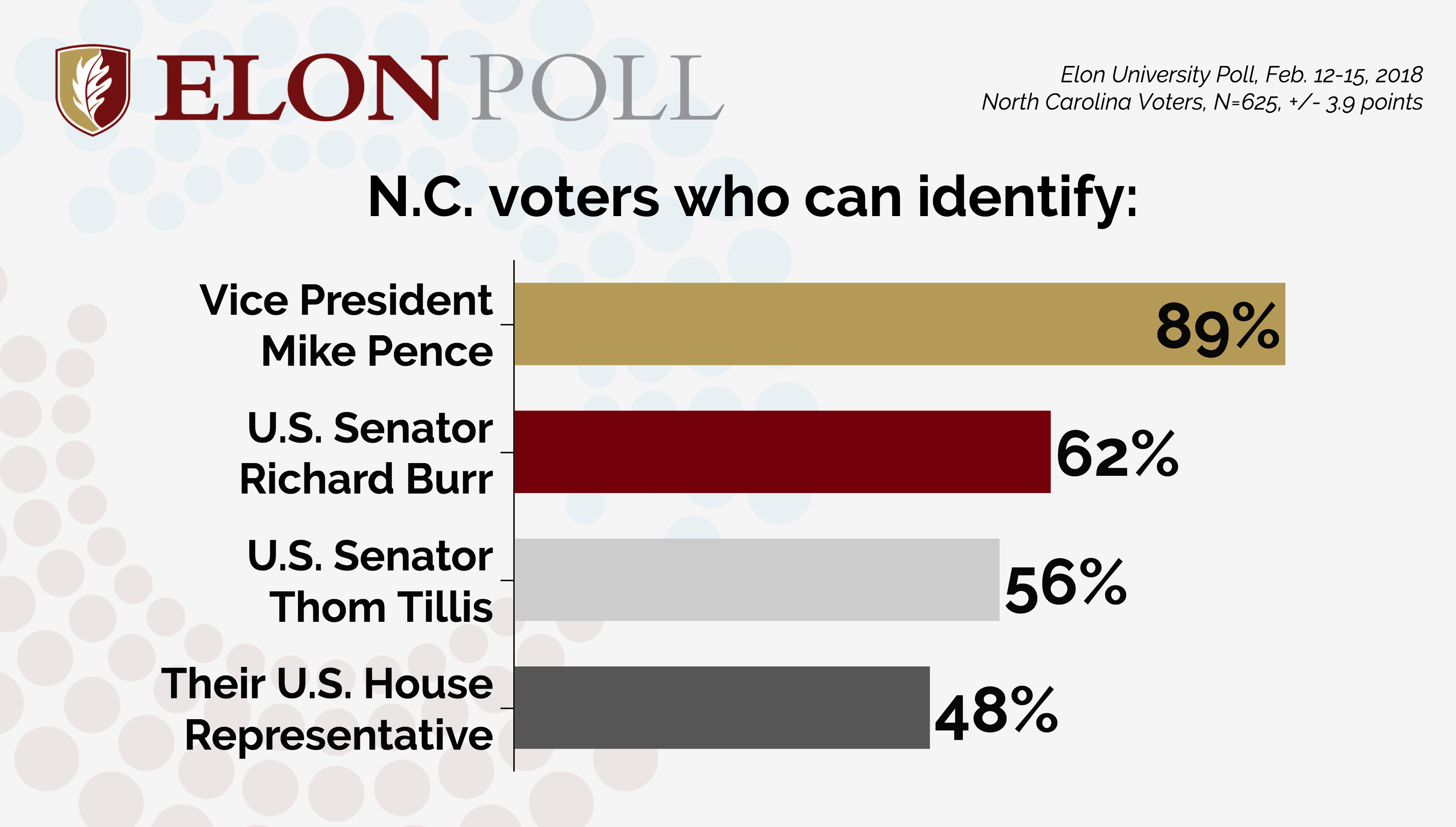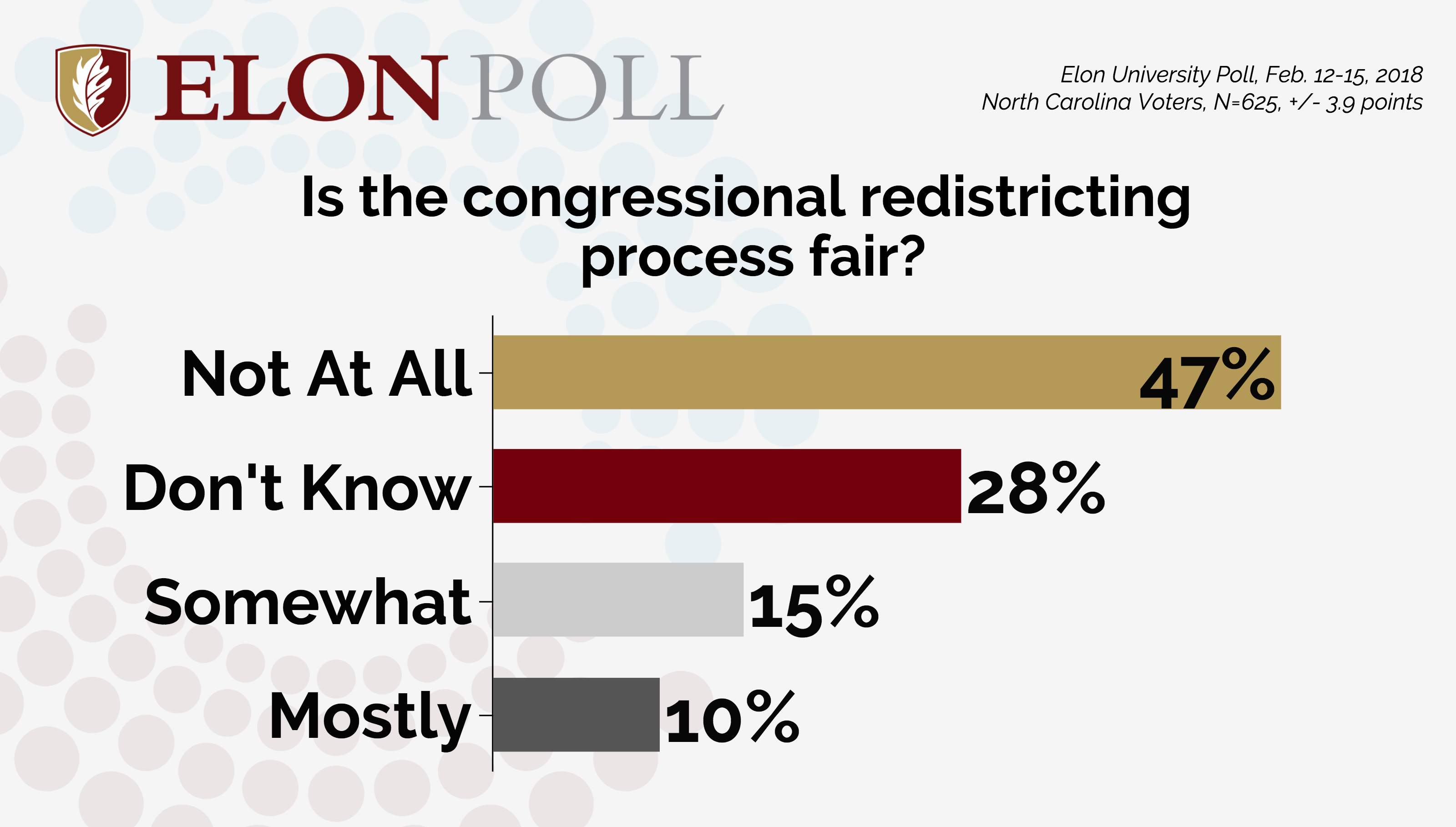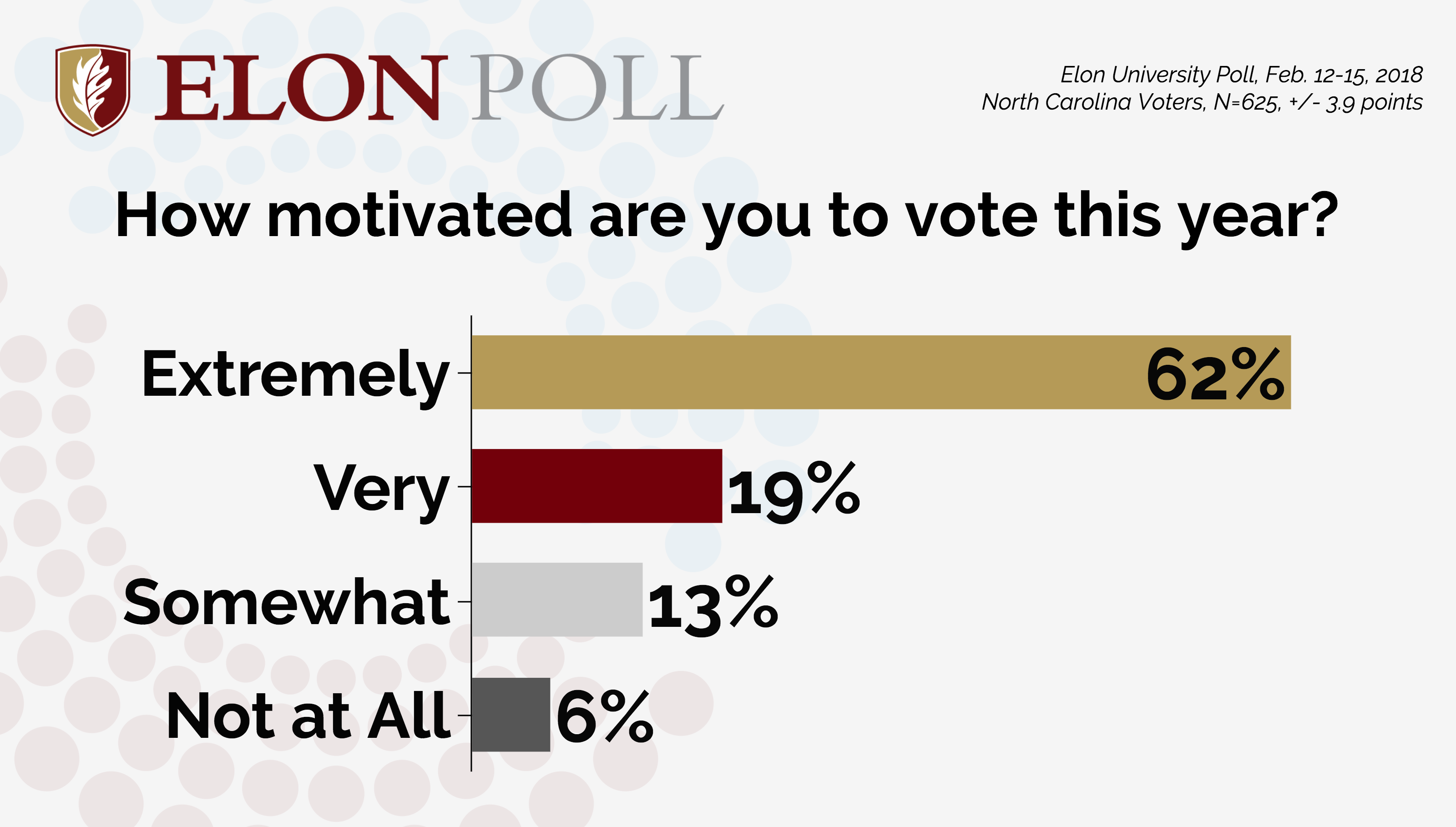North Carolina voters may want to crack open a civics book, as the latest Elon University Poll shows Tar Heel State voters mirror the national trend of scoring low on political knowledge.
The poll found N.C. voters were more likely to identify federal and statewide elected officials than they were local officials. While North Carolinians may be able to pick Gov. Roy Cooper or U.S. Sen. Richard Burr out of a lineup, the same isn’t as likely for House Speaker Tim Moore, R-Cleveland, or Senate leader Phil Berger, R-Rockingham.
This trend isn’t unique to North Carolina. The poll points out that Pew Research Center, a nonpartisan think tank, found similar results across the country. The poll referenced a 2007 Pew study that found 62 percent of Americans could identity the NFL’s Peyton Manning while only 15 percent could identity Harry Reid as a U.S. senator.
“Low political knowledge is unfortunately an ever-present reality in American politics,” said Jason Husser, director of the Elon University Poll and assistant professor of political science and policy studies at Elon. “However, voters ‘get by’ with limited information by relying on shortcuts in decision-making. Chief among these shortcuts is party label.”
The poll was conducted via a mixed sample of cell phone and landline use between Feb. 12-15 and reached 625 N.C. voters. The margin of error for the poll is +/-3.92 percent.
More than 80 percent of respondents successfully identified Cooper as the governor while only 11 percent identified Berger. Even fewer respondents correctly identified Moore as the speaker of the House, 8 percent. Sixty-two percent of respondents were able to name Burr’s office as U.S. senator and 56 percent could do the same for Burr’s Senate colleague Thom Tillis.
 The exception to this trend is N.C. Labor Commissioner Cherie Berry. Nearly 50 percent of respondents correctly identified Berry’s office, which the poll credits to her picture and name posted in every elevator. The poll also accepted Elevator Lady or Elevator Queen, which comprised 65 percent of the correct answers to this question.
The exception to this trend is N.C. Labor Commissioner Cherie Berry. Nearly 50 percent of respondents correctly identified Berry’s office, which the poll credits to her picture and name posted in every elevator. The poll also accepted Elevator Lady or Elevator Queen, which comprised 65 percent of the correct answers to this question.
The poll also tested voters’ knowledge about redistricting. More than half did not know that the General Assembly is in charge of redistricting. Even more respondents — 75 percent — did not know redistricting is done every 10 years. Only 15 percent of respondents answered both redistricting questions correctly.
 “Some political debates, like that of redistricting, would be much richer if more people started those conversations with key details — like who does redistricting and when it typically happens,” Husser said.
“Some political debates, like that of redistricting, would be much richer if more people started those conversations with key details — like who does redistricting and when it typically happens,” Husser said.
When asked whether the congressional redistricting process is fair, 47 percent said not at all and 28 percent didn’t know. Fifteen percent said it was somewhat fair and 10 percent said it was mostly fair.
The question about redistricting fairness was asked immediately after redistricting knowledge questions, which may have influenced the poll results.
“Question order effects refer to the tendency of a question to be influenced by the questions proceeding it,” Husser explained.
 Respondents were asked how motivated they were to vote after they were asked about political knowledge and redistricting, which also may have influenced their answers. Husser said respondents might have been more inclined to say they are highly motivated to vote after answering several questions about politics.
Respondents were asked how motivated they were to vote after they were asked about political knowledge and redistricting, which also may have influenced their answers. Husser said respondents might have been more inclined to say they are highly motivated to vote after answering several questions about politics.
The poll found 62 percent of voters are extremely motivated to vote, 18.7 percent are very motivated, and 12.9 percent are somewhat motivated. Slightly more than 5 percent are not too motivated to vote and less than 1 percent are not at all motivated.
“It’s much easier to feel motivated than to actually turn out to vote. I don’t anticipate high turnout in 2018 based on evidence in this survey alone,” Husser said. “However, the survey result is suggestive that many North Carolina voters do feel motivated right now.”